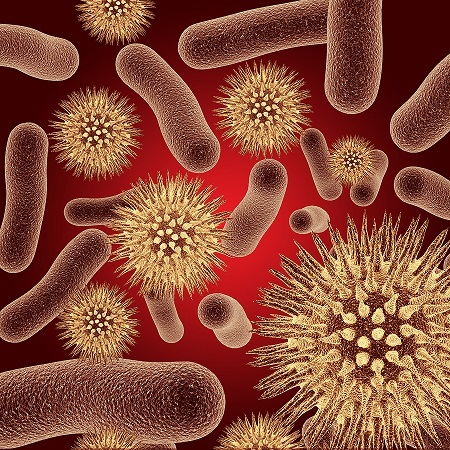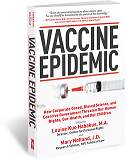Indiana Coalition for Vaccination Choice Comments:
The high rate of pertussis infections in fully vaccinated populations thought to be due to the pertussis bug mutating. Perhaps. It is also possible patients were not tested for pertussis in the past but are now. It is also possible the vaccine/drug has a very high failure rate. At any rate, it is very clear that individuals considered fully vaccinated for this “vaccine preventable” disease are catching and spreading it at record breaking pace.
by Lisa Schnirring
Center for Infectious Disease Research & Policy
Researchers in other countries have found evidence that circulating strains of Bordetella pertussis have adapted to the acellular vaccine, and researchers today reported similar findings for the first time in US kids, based on genetic analysis of isolates from hospitalized children.
Infectious disease experts have been eyeing waning immunity from acellular pertussis vaccines as a contributor to increasing numbers of cases of pertussis (whooping cough) in several countries, and evidence is mounting that another factor fueling the outbreaks could be that the bacteria are adapting to the vaccine.
The US researchers, including a scientist from the US Centers for Disease Control and Prevention (CDC), described their findings in a letter in the New England Journal of Medicine.
So far, lab studies in Japan, France, and Finland have identified variants of B pertussis that are negative for pertactin, a virulence factor and an outer membrane protein that promotes adhesion to tracheal epithelial cells. Pertactin purified from B pertussis is a key component of the acellular pertussis vaccine.
Many countries switched from the whole-cell pertussis vaccine to the acellular version in the late 1990s because of a fairly high rate of minor side effects in the whole-cell vaccine. However, in the face of rising pertussis levels, surveillance studies in the United States and other countries are finding a gap in protection in children who received doses of acellular vaccine. The CDC has said that pertussis cases are at their highest point since 1955.
In the US study, researchers looked at pertactin genes from 12 isolates of B pertussis from children hospitalized in Philadelphia in 2011 and 2012. Most of the patients were younger than 2 years old, but the group also included a 9-year-old and 14-year-old.
They analyzed the pertactin genes from the specimens and amplified and sequenced the coding region. They determined the pulsed-field gel electrophoresis (PFGE) patterns and detected pertactin using Western blotting with antiserum and a strain from the World Health Organization (WHO) as the pertactin-positive reference.
Eleven of the 12 pertussis strains they tested were negative for pertactin. The pertactin allele in all isolates was pm2, but the mutations were different than pertactin-negative pm2 isolates from France, according to the report. (Variants in Japan and Finland had insertion sequences in the pm1 allele.)
The researchers wrote that their finding appears to be the first reported pertactin-negative variant of B pertussis in the United States and that more studies should be done on isolates from different parts of the country to see if the finding is an isolated local event or a more widespread shift.
“An understanding of the epidemiology and virulence of pertactin-negative variants is crucial to developing the next generation of pertussis vaccines,” the group wrote.
Recent studies suggest the pertactin-negative mutants are transmissible in humans. Also, a study by French researchers that appeared Jan 31 in Emerging Infectious Diseases comparing clinical symptoms in infants younger than 6 months old found little difference between the pertactin-negative and pertactin-positive isolates. Their analysis included samples from 60 babies; 20 were pertactin-negative and 40 were pertactin-positive.
They wrote that the findings suggest the negative isolates were as virulent as the positive ones and that more studies are needed to track the virulence of B pertussis species, which could help guide strategies for addressing adaptation to the acellular vaccine.
Several efforts in the United States are under way to explore the spike in pertussis cases, assess the burden of the disease, and examine possible problems with the vaccine, according to expert presentations on Feb 5 before the National Vaccine Advisory Committee, the group that advises the US Department of Health and Human Services.
Queenan AM, Cassiday PK, Evangelista A. Pertactin-negative variants of Bordetella pertussis in the United States. (Letter) N Engl J Med 2013 Feb 7;368(6):583-4 [Abstract]
See also:
Jan 31 Emerg Infect Dis report
Visit Center for Infectious Disease Research & Policy here.
Vaccine Epidemic
by Louise Kuo Habakus and Mary Holland J.D.
FREE Shipping Available!





